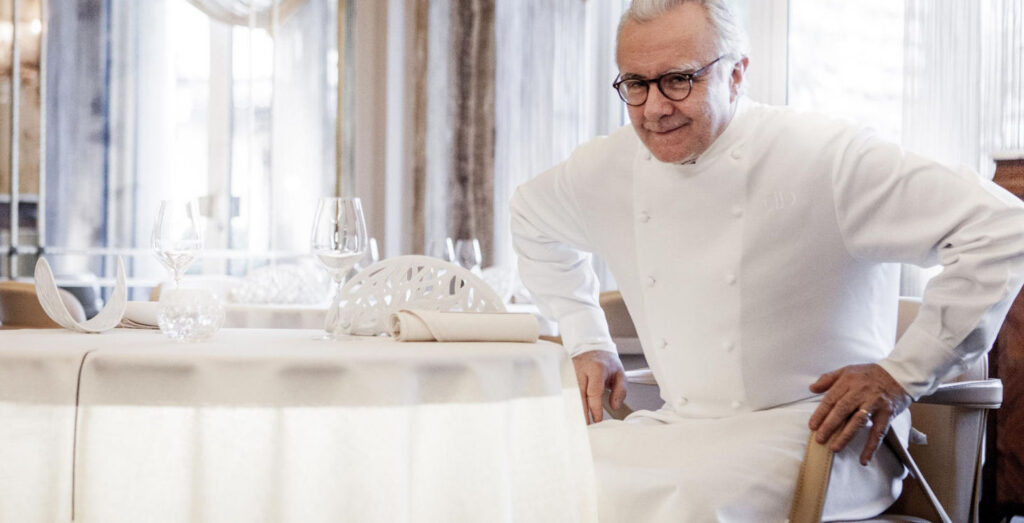Alain Ducasse: From a farm in Landes to the Principality of Monaco

Hailing from a modest family of farmers in the Landes region of southwestern France, it is in this environment that Alain Ducasse would develop his love of quality products, taste, and French gastronomy.
From a young age, the future chef was surrounded by fine products of the South West, from foie gras and cep mushrooms to the more classic garden vegetables. Tomato picking sometimes led to eel or pike fishing in the nearby river. Nostalgic, Alain Ducasse would later say of this time in his life that, apart from the butter, everything else was available on the farm.
Getting to the top through hard work
Like other great chefs such as Joël Robuchon or Paul Bocuse, his success was not without sacrifice. Alain Ducasse left the family home age 16, where he began an apprenticeship at the hotel Pavillon Landais in Soustons before joining the Lycée d’hôtellerie de Gascogne, which he left a few months before graduation.
His career took off in 1975, working alongside Michel Guérard, a two-Michelin-star chef. It almost came to an untimely end in 1984 when he miraculously escaped a plane crash, from which he emerged as the sole survivor. This event sadly remains a serious trigger for the eating disorder that Alain Ducasse still lives with today.
Linking the Rock to kitchens around the world
His love affair with Monaco began in 1987 when he set up the restaurant “Le Louis XV” in the Hôtel de Paris Monte-Carlo, Monaco’s most prestigious luxury hotel. He was only 33 years old when he was awarded the most esteemed distinction for a chef: the third Michelin star, the ultimate symbol of culinary achievement.
On 23rd June 2008, by personal order of Prince Albert II, he was naturalised as a Monegasque and consequently renounced his French nationality, proof of his unfailing love for the Rock. The Monegasque chef is renowned throughout France and is equally well known across the Atlantic, where the New York Times devotes entire pages to him, full of fascination, describing him as a titan among titans. Among his greatest achievements are his Parisian restaurants, the Plaza Athénée, the Meurice and the Jules Verne, the Eiffel Tower hotel which he manages with great success.
The legacy of the chef-virtuoso is equally impressive, with some thirty professional schools around the world shaped in his image and these two keywords: high standards and excellence. Many renowned chefs have improved their portfolio at this school or have been inspired by Alain Ducasse. We can cite Michel Sarran, Christophe Moret, Dominique Lory, Jean-François Piège or Elena Arzak as the spiritual children of the chef with the perfect palate.
Gilles de Maistre, director of the 2017 documentary about the multi-star Ducasse, says that he has “the ultimate taste as others the ultimate ear”.
While his culinary legacy seems indisputable, his influence extends far beyond the stoves of the greatest restaurants. Forbes magazine regularly ranks him among its broad list of the world’s most influential personalities.










